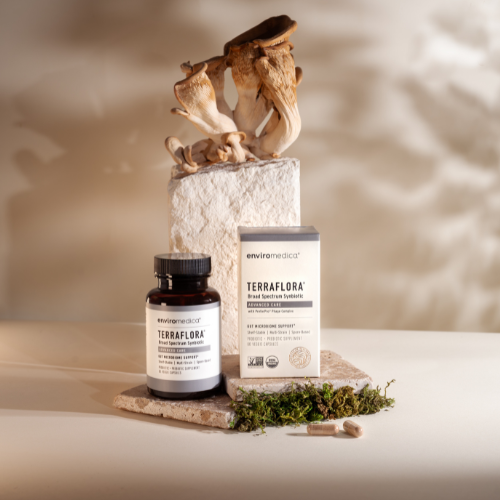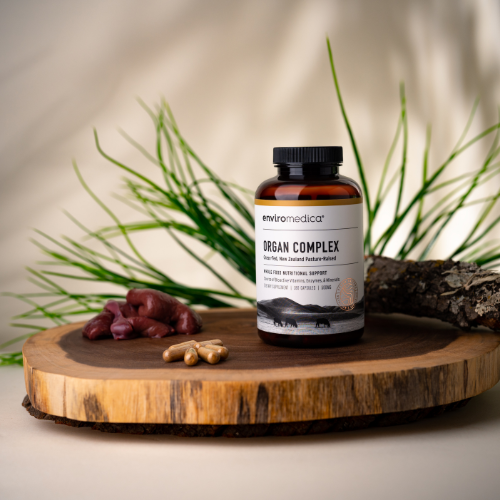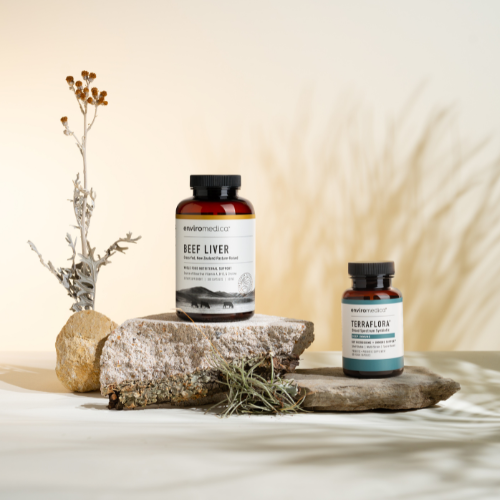During cold and flu season it’s important to consume foods that enhance the immune system. Have you heard the saying “it all lies in the gut?” There is truth to this as 70-80% of our entire immune system resides within the gut. Learn how probiotics play an important role in warding off the ubiquitous cold.
Probiotics can help to boost the immune system and ward off inflammatory responses in the gut.
The lining of the small intestines is full of lymph nodes. When necessary, inflammation in the intestines creates a pathway for the immune system to carry out an attack against invading viruses and bacteria. However, when inflammation is present but not needed, illnesses such as allergies, the flu, and chronic infections can occur. Probiotics offer a beneficial defense against the effects caused by this unwarranted inflammation.
Probiotics also keep the gut healthy, to ensure the immune system functions well. Epithelial tissues in the intestines form a barrier against pathogenic microbes and other harmful substances present. Epithelial intestinal tissue is dependent upon gut flora. If our gut flora is not sufficient then the epithelial lining does not regenerate. For epithelial homeostasis, probiotics foster intestinal epithelial cell survival, strengthen cell barrier function, and initiate protective responses from intestinal epithelial cells.
Probiotics can also modulate the immune system, enhancing the body’s innate immunity. This modulating effect helps alleviate excessive inflammation in the gut, thereby boosting immune function.
Probiotics can boost the body’s immune function and assist the body in warding off infections.
Some recent studies support a significant role of probiotics for humans and animals as a barrier against microbial infection. In one study,1 probiotics were beneficial in offering complete protection for mice from a viral infection pathogen.
The probiotics lengthened the survival rates from the pneumonia virus of mice that were infected. A randomized, parallel, double-blind, placebo-controlled study2 showed that consumption of certain probiotics for a 12-week period could reduce the risk of acquiring common cold infections in healthy individuals. The occurrence of catching one or more common colds, the length of days with common cold symptoms, and the symptoms from the cold were all reduced.
A recent New Zealand study conducted with professional rugby players showed probiotics enhanced the player’s ability to ward off and fight colds. This study involved 30 rugby union players who received either a probiotic supplement (3 billion CFUs/day),
or placebo, for four weeks. During this period, 80% of the placebo group experienced a single episode of the common cold or stomach upset, 53% of those in the probiotic group encountered such illness.
In the placebo group, the duration of illness was 5.8 days; duration among probiotic subjects was 3.4 days. The authors of this study suggested: “These positive effects of probiotic supplements provide evidence for the beneficial effects of daily supplementation with these probiotic strains in highly trained rugby union players.”3
How do probiotics boost immune health and help prevent viruses?
Some intestinal microbes have a presence that is correlated with healthy intestinal flora. However, the metabolic end products of their growth are organic acids (lactic and acetic acids). These acids have a tendency to lower the pH of the intestinal contents, thus creating an atmosphere for harmful bacteria. Probiotics secrete antibacterial peptides, capable of killing off harmful bacteria in the gut.
Probiotics in the GI tract help to reinforce the barrier function of the intestinal lining, lowering the chance of bacteria in the intestines entering into the bloodstream. This function may decrease infections and immune-related reactions, thus supporting the health of the immune system.
Knowledge of intestinal flora is growing, and it is becoming evident that we need the protection of these beneficial bacteria. Quality supplements and raw fermented and cultured foods are great sources of probiotics. Be sure you’re getting these in your diet, or taking a quality soil based probiotic supplement!
About the Author:
Kathryn is a functional nutritional therapist, author, editor, and mama of two boys. She enjoys spending her free time out in nature-hiking and fishing. You can find her at www.primalmusings.com and her book “Forties on Fire” can be found on Amazon.
References
- 1. Gabryszewski SJ, Bachar O, Dyer KD, et al. (2011) Lactobacillus-mediated priming of the respiratory mucosa protects against lethal pneumovirus infection. J Immunol;186:1151–1161. [NIH]
- 2. Berggren A, Lazou Ahren I, Larsson N, Onning G. Randomized, double-blind and placebo-controlled study using new probiotic Lactobacilli for strengthening the body immune defense against viral infections. Eur J Nutr. 2011;50:203–210. [EJN]
- 3. Brylee A. Haywood, Katherine E. Black, Dane Baker, James McGarvey, et al. (2014) “Probiotic supplementation reduces the duration and incidence of infections but not severity in elite rugby union players.” Journal of Science and Medicine in SportVol. 17, Issue 4, Pages 356-360.












